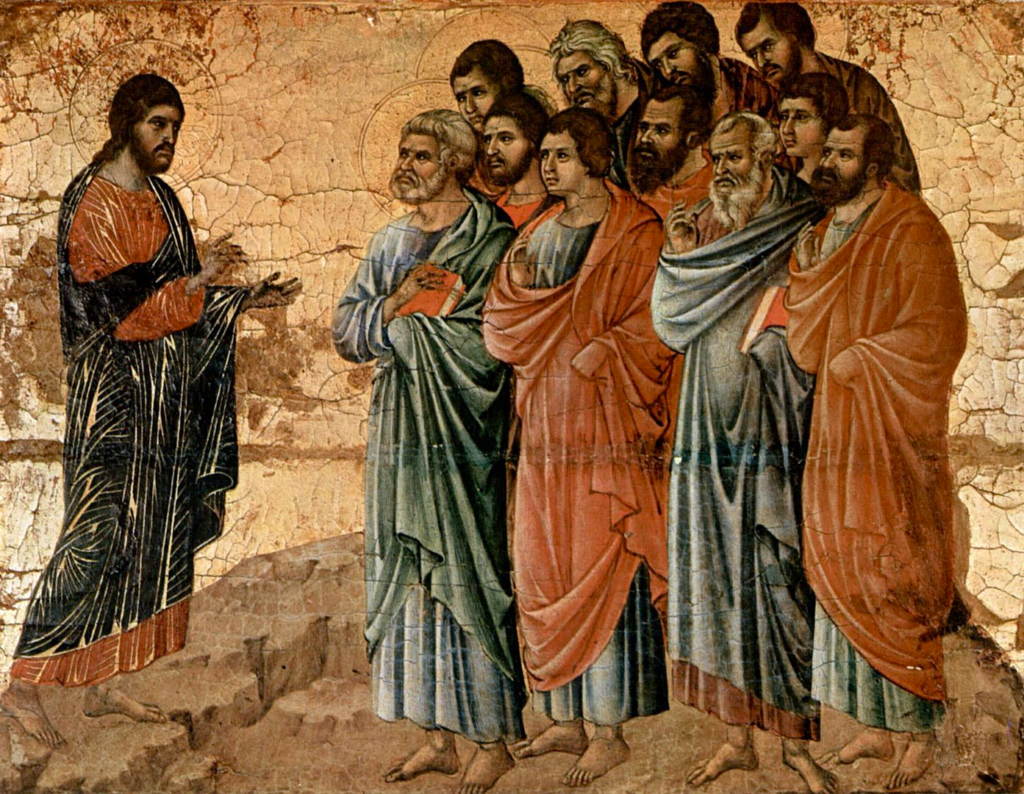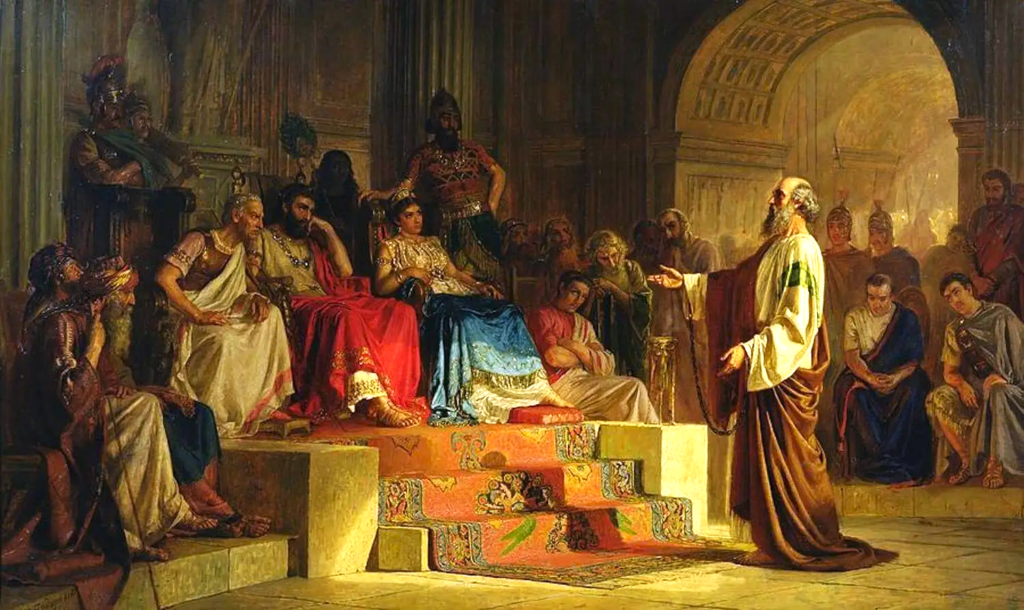Translation of the Gospel According to John
At that time Jesus said to His disciples: I go to Him that sent Me: and none of you asketh Me: Whither goest Thou? But because I have spoken these things to you, sorrow hath filled your heart. But I tell you the truth: it is expedient to you that I go: for if I go not, the Paraclete will not come to you: but if I go, I will send Him to you. And when He is come, He will convince the world of sin, and of justice and of judgment. Of sin, because they believed not in Me: of justice, because I go to the Father, and you shall see Me no longer: of judgment, because the prince of this world is already judged. I have yet many things to say to you; but you cannot bear them now. But when He, the Spirit of truth, is come, He will teach you all truth. For He shall not speak of Himself: but what things soever He shall hear He shall speak, and the things that are to come, He shall show you. He shall glorify Me: because He shall receive of Mine and shall show it to you.
A Message From St. John Chrysostom’s Homilies on John: LXXVIII.
These things I said not unto you at the beginning, because I was with you. But now I go My way to Him that sent Me; and none of you asketh Me, Whither goest Thou? But because I have said these things unto you, sorrow hath filled your heart.
Great is the tyranny of despondency, and much courage do we need so as to stand manfully against the feeling, and after gathering from it what is useful, to let the superfluous go. It hath somewhat useful; for when we ourselves or others sin, then only is it good to grieve; but when we fall into human vicissitudes, then despondency is useless. And now when it has overthrown the disciples who were not yet perfect, see how Christ raiseth them again by His rebuke. They who before this had asked Him ten thousand questions, (for Peter said, Whither goest Thou? (John 13:36); and Thomas, We know not whither Thou goest, and how can we know the way? (John 14:5, 8); and Philip, Show us Thy Father); these men, I say, now hearing, they will put you out of the synagogues, and will hate you, and whosoever killeth you will think that he doeth God service, were so cast down as to be struck dumb, so that they spake nothing to Him. This then He maketh a reproach to them, and saith, These things I said not unto you at the beginning, because I was with you; but now I go unto Him that sent Me, and none of you asketh Me, Whither goest Thou? but because I have said these things unto you, sorrow hath filled your heart. For a dreadful thing is immoderate sorrow, dreadful and effective of death. Wherefore Paul said, Lest perhaps such a one should be swallowed up by overmuch sorrow. (2 Cor 2:7).
And these things, saith He, I told you not at the beginning. Why did He not tell them at the beginning? That none might say that He spake guessing from the ordinary course of events. And why did He enter on a matter of such unpleasantness? I knew these things, He saith, from the beginning, and spake not of them; not because I did not know them, but ‘because I was with you.’ And this again was spoken after a human manner, as though He had said, “Because ye were in safety, and it was in your power to question Me when ye would, and all the storm blew upon Me, and it was superfluous to tell you these things at the beginning.” But did He not tell them this? Did He not call the twelve, and say unto them, Ye shall be brought before governors and kings for My sake,” and, they shall scourge you in the synagogues? (Matt 10:17-18). How then saith He, I told you not at the beginning? Because He had proclaimed before the scourgings and bringing before princes, still not that their death should appear so desirable that the action should even be deemed a service to God. For this more than anything was suited to terrify them, that they were to be judged as impious and corrupters. This too may be said, that in that place He spake of what they should suffer from the Gentiles, but here He hath added in a stronger way the acts of the Jews also, and told them that it was at their doors.
But now I go to Him that sent Me, and no man of you saith, Whither goest Thou? But because I have said these things unto you, sorrow hath filled your heart. It was no slight comfort to them to learn that He knew the excess of their despondency. For they were beside themselves from the anguish caused by their being left by Him, and from their awaiting the terrible things which were to come, since they knew not whether they should be able to bear them manfully. “Why then after this did He not tell them that they had been vouchsafed the Spirit?” That thou mightest learn that they were exceedingly virtuous. For if, when they had not yet been vouchsafed the Spirit, they started not back, though overwhelmed with sorrow, consider what soft of men they were likely to be after having enjoyed the grace. If they had heard this at that time, and so had endured, we should have attributed the whole to the Spirit, but now it is entirely the fruit of their own state of mind, it is a clear manifestation of their love for Christ, who applieth a touchstone to their mind as yet defenseless.



